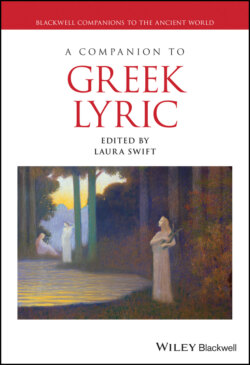Читать книгу A Companion to Greek Lyric - Группа авторов - Страница 63
The Advent of Democracy?
ОглавлениеThe Athenians of the classical period liked to think that the Pisistratid tyranny had been replaced by democracy: Herodotus (6.131.1) has little to say about the younger Cleisthenes, other than that he had “instituted the tribes and the democracy.” But this was largely self-delusion (Hall 2010: 15–18). The immediate aftermath of Hippias’ expulsion was a return to elite infighting. Indeed, the word dēmokratia is heavily freighted with meaning because it implies that supreme authority or power (kratos) resides with the dēmos—a word that, in Archaic poetry, regularly denotes the population of a city exclusive of the elites. In other words, a political revolution occurred in which the masses wrested power away from the formerly governing elites and this can only really have happened with Ephialtes’ attacks on the aristocratic council of the Areopagus in 462/1 BC ([Arist.] Ath. Pol. 25.2; see Raaflaub 2007; Giangiulio 2015: 21–24). It can hardly be coincidental that the word is first paraphrased (δήμου κρατοῦσα χείρ) in Aeschylus’ Suppliant Maidens (604), thought to have been performed in the later 460s, or that this is also the approximate date attributed to a gravestone for a certain individual named Democrates (Hansen 1991: 70). But, if Athens crafted what is often termed a “radical” brand of democracy, it may not have been the first experiment in what we might call popular rule. Argos probably adopted a form of democracy very similar to Athens at about the same time, but there are some indications that elite rule had already yielded to more popular governance three decades earlier (Gehrke 1985: 361–363; Piérart 1997: 333). Herodotus (5.30.1) recounts how the wealthy—literally “fat” (pacheis)—of the island of Naxos had been expelled by the dēmos and had found refuge in Miletus in the years immediately prior to the Ionian Revolt of 499 BC. And Plutarch (Mor. 304e) refers to the establishment of an “undisciplined democracy” (ἀκολάστου δημοκρατίας) at Megara as early as the first decades of the sixth century, though the testimony has been doubted (e.g., Forsdyke 2005: 53–55).19
Kurke (1991) has argued that athletic victors, who were almost invariably from elite backgrounds in the Archaic period, stood at the intersection of three concentric circles, constituted by the oikos (household), polis, and the wider transregional community of aristocrats, and that one of the functions of Pindar’s epinician odes was to reintegrate the victor into his home community and to mitigate the potential tensions that might arise between him, his family, and his fellow citizens. Peter Rose (1992: 159, 177–178) has gone further and argued that Pindar’s celebration of aristocratic values was a response to the Cleisthenic democracy of Athens. Yet, as Rosalind Thomas (2007) has pointed out, there are few odes that are commissioned for Athenian victors while the epinician tradition can be traced back to at least Simonides ca. 520 BC and perhaps even Ibycus before him (and may have developed alongside an even earlier tradition of setting up honorific statues)—i.e., well before Cleisthenes’ reforms which in any case, as we have seen, do not seem to have ushered in true democracy at Athens. There can, however, be little doubt that, by the end of Pindar’s and Bacchylides’ careers in the middle of the fifth century, the Greek world was a very different place. The tyrannies on Sicily had collapsed, democratic regimes had been installed in many cities throughout the Greek Mediterranean, and the more elitist expressions, values, and concerns of lyric poetry began to yield to the sort of civic self-reflection that is so characteristic of Athenian drama.
